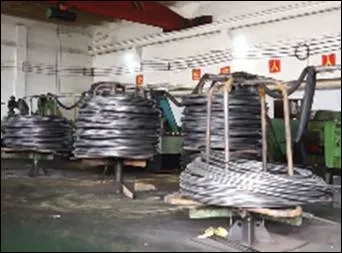ное. . 27, 2024 01:30 Back to list
High-Strength 316 Stainless Steel Threaded Rod for Various Applications
Understanding 316 SS Threaded Rod Properties, Applications, and Benefits
In a world where fasteners play a crucial role in the assembly of various structures, the choice of material can significantly impact the performance and longevity of the components being used. One such material that has gained considerable attention in recent years is the 316 stainless steel (SS) threaded rod. Known for its exceptional corrosion resistance and mechanical properties, 316 SS threaded rods are widely used in numerous industries, making them a go-to choice for many engineers and manufacturers.
Properties of 316 Stainless Steel
316 stainless steel is part of the austenitic family of stainless steels, which are known for their high corrosion resistance and excellent mechanical properties. The key alloying elements in 316 SS include chromium, nickel, and molybdenum. The addition of molybdenum enhances the material's resistance to pitting and crevice corrosion, particularly in chloride-rich environments, such as marine applications.
The composition of 316 SS typically includes
- Chromium Approximately 16-18%, which provides oxidation resistance. - Nickel About 10-14%, which improves the material's ductility and toughness. - Molybdenum Roughly 2-3%, which further enhances corrosion resistance.
In terms of mechanical properties, 316 stainless steel exhibits high tensile strength, good ductility, and excellent weldability. This makes it suitable for structural applications, where strength and reliability are paramount.
Applications of 316 SS Threaded Rods
The versatility of 316 SS threaded rods allows them to be used in various applications across several industries. Some of the notable applications include
1. Marine Environments With its superior corrosion resistance, 316 SS threaded rods are widely used in shipbuilding, offshore drilling rigs, and other marine applications where saltwater exposure is a concern.
2. Chemical Processing The chemical industry often uses 316 SS threaded rods for equipment that must withstand aggressive chemicals. The corrosion resistance ensures that fasteners remain reliable, reducing the risk of structural failure.
3. Food and Beverage Industry Stainless steel is a common choice in food processing environments due to its non-reactive properties. The use of 316 SS threaded rods in this industry ensures that no contaminants leach into food products.
316 ss threaded rod

4. Construction Threaded rods made of 316 SS are utilized in construction projects, particularly in structures that encounter harsh environmental conditions, such as bridges and buildings near coastal areas.
5. Pharmaceuticals The sterilization processes in the pharmaceutical industry require highly corrosion-resistant materials. 316 SS threaded rods are often employed in the assembly of equipment used in drug manufacturing.
Benefits of 316 SS Threaded Rods
The selection of 316 SS threaded rods over other materials offers numerous benefits. Here are some of the key advantages
- Corrosion Resistance As mentioned earlier, the outstanding resistance to corrosion ensures that 316 SS threaded rods can endure challenging environments without failing.
- Strength and Durability 316 SS exhibits high tensile strength, making it suitable for load-bearing applications. Its durability also means that it can withstand physical stresses over time.
- Temperature Tolerance 316 stainless steel maintains its properties at elevated temperatures, making it suitable for applications that involve heat exposure.
- Hygienic Properties The non-porous surface of stainless steel prevents the accumulation of bacteria, making it ideal for applications in the food and medical industries.
- Longevity and Reduced Maintenance Costs Using 316 SS threaded rods can lead to longer service life and lower maintenance costs due to their resistance against wear and corrosion, ultimately saving money in the long run.
Conclusion
In conclusion, 316 stainless steel threaded rods are essential components in a myriad of applications, from marine constructions to pharmaceutical manufacturing. Their remarkable mechanical properties and superior corrosion resistance establish them as reliable fasteners in environments that demand high performance. Whether you are an engineer designing a new structure or a manufacturer sourcing materials, the benefits of 316 SS threaded rods make them a worthwhile investment. With an understanding of their properties and applications, you can make informed decisions that enhance the integrity and longevity of your projects.


